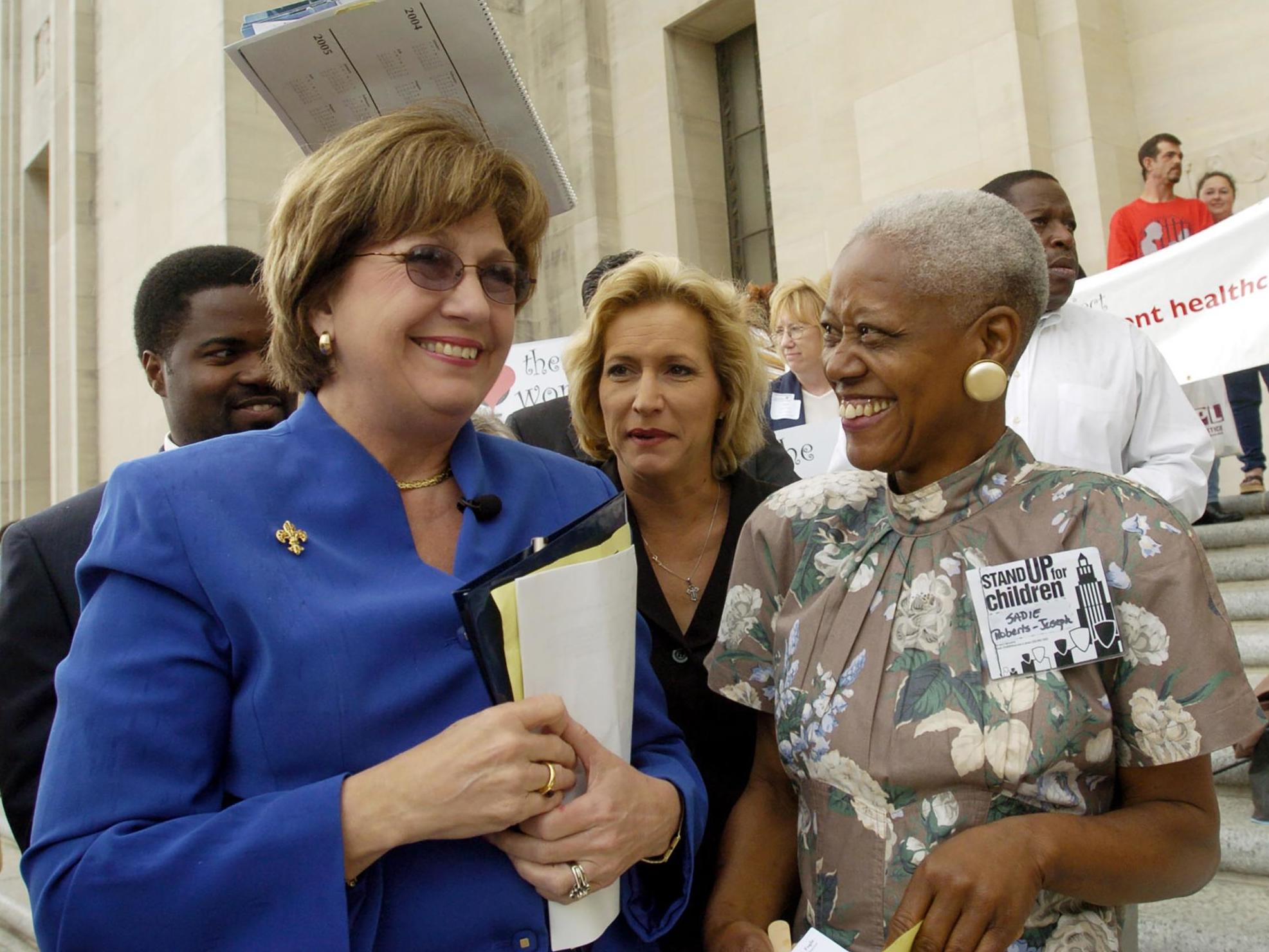Sadie Roberts-Joseph: African American museum founder found dead in boot of car
Authorities believe ‘tireless advocate of peace in the community’ was likely suffocated

Louisiana was bracing for a dangerous tropical storm over the weekend when the call came about a different kind of crisis: a dead body had been found in a car boot near downtown Baton Rouge.
The call, placed by an anonymous tipster on Friday, led the police to a discovery that would stun the community.
The body was that of Sadie Roberts-Joseph, 75, a community leader and the founder and curator of the city’s African American history museum.
Her body had been found in the boot of her own car, the authorities said, with no visible signs of trauma.
On Monday, the East Baton Rouge Parish coroner, Dr William “Beau” Clark, ruled her death a homicide. The authorities believe she was likely suffocated.
No suspect has been named.
“This is senseless,” Shane Evans, chief of investigations for the coroner’s office, said in an interview on Monday. “None of us understand why anybody would do this to an elderly lady who has done nothing but good for her community.”
The news of her death pierced the city’s African American community, where Ms Roberts-Joseph was remembered as a quiet leader who could often be seen at community events wearing vibrant African attire.
She was known for putting on an annual celebration for Juneteenth, the holiday commemorating the end of slavery in the United States.
The Baton Rouge African American Museum she founded tells the stories of African Americans in Louisiana throughout history, from cotton grown in the museum’s garden to a 1953 bus from the year of the city’s public bus boycott protesting racial segregation.
It was previously called the Odell S Williams Now and Then Museum of African American History.
Ms Roberts-Joseph also gave away bicycles at the museum and started a community organisation to fight drugs and violence, according to a statement by the Baton Rouge Police Department, which called her a “tireless advocate of peace in the community” and condemned her death a “heinous act”.
In a statement on Monday, her family described her as an advocate and an educator who was dedicated to the East Baton Rouge community for more than 50 years.
“She was proof that one voice that keeps on ringing, singing, praying and speaking can make a difference,” the statement said.
Other tributes poured in online, including from C Denise Marcelle, a state representative.
“This woman was amazing and loved her history,” she wrote on Sunday.
“She never bothered anyone, just wanted to expand her African American Museum downtown, where she continually hosted the Juneteenth Celebration yearly. I loved working with her and am saddened by her death.”
By Monday, Ms Marcelle said on Facebook that her sadness had turned to anger. She called on the community to take action by donating to the museum.
“It’s not enough that we talk about her infectious smile, nice demeanour or knowledge she possessed about our history,” she wrote. “Let’s make sure that her museum is kept open and expanded for our future generations.”
Ms Roberts-Joseph’s body was found in a part of town between her home and the museum.
“The community is in uproar,” Dr Rani Whitfield, a local doctor who is running for coroner, said in an interview on Monday. He posted an online tribute to Ms Roberts-Joseph, praising her community work and Juneteenth celebrations.
“Seventy-five years old, that is unacceptable,” he said. “I am devastated by this.”
Residents in Baton Rouge were consumed over the weekend by Tropical Storm Barry, which had threatened catastrophic fatal flooding but in the end did not deliver on that worst case.
But Dr Whitfield said many people were equally upset at the news of Roberts-Joseph’s death.
“It seemed to be just as important to the community as the flood,” he said.
In an interview with The Advocate, her sister, Beatrice Johnson, who lives nearby, said that she had seen her sister daily, including on Friday.
“She would come by here every day,” Ms Johnson told the newspaper.
On Friday, she said, her sister stopped over because “she had mixed some cornbread, but her oven went out, and she brought it here to put in the oven”.
“The bread is still there,” Ms Johnson said. “She never came back to get it.”
New York Times
Join our commenting forum
Join thought-provoking conversations, follow other Independent readers and see their replies
Comments